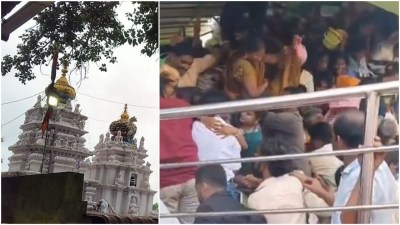Mumbai train blasts accused get life term
1 PM: A blue police van enters the Sessions Court, Kala Ghoda. Ten men walk out silently, each escorted by a constable.It was a big day for ...

1 PM: A blue police van enters the Sessions Court, Kala Ghoda. Ten men walk out silently, each escorted by a constable.
It was a big day for them. On June 29, the sessions court had convicted them for conspiring and carrying out blasts in local trains in Mumbai between January and February 1998. But the sentence was not passed. Friday was judgement day.
The prosecution had pleaded for a death sentence for four of the accused and life sentence for the others. When Additional Sessions Judge V.L. Achalya entered the courtroom, it was packed with lawyers and mediapersons. The 11 men — one accused was out on bail — were pushed into the stand. At 1.30 pm, the judge began reading the sentence.
‘‘I have heard the various conflicting debates on capital punishment,’’ Achalya said, adding that death penalty was ‘‘an exception’’. ‘‘Here is a case where the accused are guilty by conspiracy and no distinction can be made among the accused,’’ Achalya added. ‘‘Therefore, I am of the view that no capital punishment should be awarded,’’ he remarked.
The court sentenced the accused to life imprisonment for murder and conspiracy to murder and 52 years of rigorous imprisonment under various charges.
Achalya also directed the state government not to act liberally while entertaining requests for remission of sentence.
The blasts
• Feb 27, 1998: Virar, Kandivli and Santacruz
• Jan 24, 1998: Between Malad and Goregaon
• Jan 23, 1998: Kanjurmarg station



- 01
- 02
- 03
- 04
- 05




























